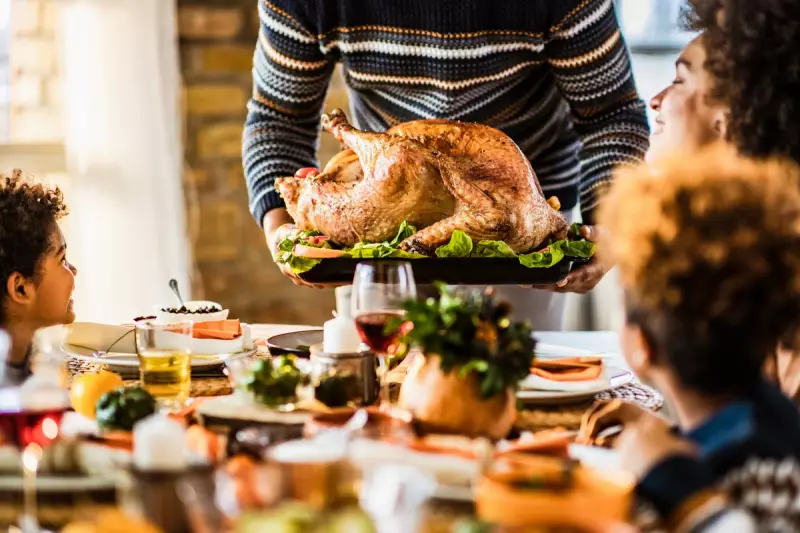
As families across America finalise their festive menus, a crucial question emerges: when is the optimal time to serve the Thanksgiving feast? The timing of this celebratory meal is often influenced by the pervasive belief that the star ingredient, turkey, induces a powerful desire to nap.
The Truth About Turkey and Tiredness
It is a well-known fact that turkey contains tryptophan, an amino acid that assists in producing melatonin, the hormone that regulates our sleep cycles, according to the Icahn School of Medicine at Mount Sinai. However, professional chefs argue that blaming the bird alone is a simplification.
California-based chef Brendan Collins confirmed to The Independent that while tryptophan does affect our sleep schedule, the sheer volume of food consumed is the real culprit. "I think the truth is that we can end up overeating on Thanksgiving, in comparison to our normal eating schedule, and we get food comas," he explained. "We need to sleep because of that. Not because of the small amount of tryptophan found in the turkey itself."
John Carpenter, an executive chef at Signature Restaurant at La Cantera Resort and Spa in Texas, concurred. He highlighted that the entire meal's heaviness, combined with festive drinks, contributes significantly to drowsiness. "Thanksgiving dinner is quite heavy, between stuffing and large amounts of meat we eat, whether that be turkey or ham," he said. "It’s also usually surrounded by friends and family, and there’s some alcohol drinking usually involved, which isn’t exactly known to keep us awake."
Strategic Timing for Your Thanksgiving Feast
Considering the inevitable post-meal lethargy, chefs recommend scheduling dinner for the daytime. This allows ample time for digestion and ensures the celebration isn't cut short by fatigue.
Chef Carpenter, who has two children, advocates for an earlier meal. "Normally for me, it’s early in the afternoon or early in the day," he shared. "I prefer earlier because it gives us the rest of the day for them to wind down from a big meal and all that. And then you have more time during Thanksgiving day to be with your family."
The guest list should also influence your timing. Chef Collins suggested tailoring the schedule to the attendees' ages. "I think if there’s a lot of children under 10 years of age, having your dinner at 2pm or 3pm would be good," he advised. "If it’s more towards the adult scene, then I think it’s more of an early dinner, late lunch kind of thing. I’d personally go for 4pm or 5pm."
Preparation and Health Considerations
Preparation is key to a stress-free day. Chef Collins urged hosts to allocate sufficient cooking time, recommending two and a half to three hours to manage vegetables and the turkey. Meanwhile, Chef Carpenter revealed his personal pre-holiday routine: adjusting his eating habits. "I always eat a little bit lighter, leading up in anticipation of a big meal. And personally, I normally don’t even eat breakfast on Thanksgiving because I know I’m going to eat so much."
Health research supports an earlier dinner. A 2022 study published in Cell Metabolism found that eating later, such as at 9pm, significantly impacts how the body regulates energy. With the large, varied nature of a Thanksgiving meal, an earlier serving time is better for physical health. "Personally, I know you shouldn’t be eating a huge meal later at night, especially the size of a normal Thanksgiving meal," Collins added. "So definitely give yourself the time for your food to settle down."
Ultimately, while planning is important, the chefs emphasise that the holiday's spirit should not be lost to stress. "Don’t stress out too much about the food," Collins concluded. "I know sometimes Thanksgiving is one of the first times you’ve seen friends or family in a long time. So I think the idea is that it’s celebratory, and make sure you do that."






